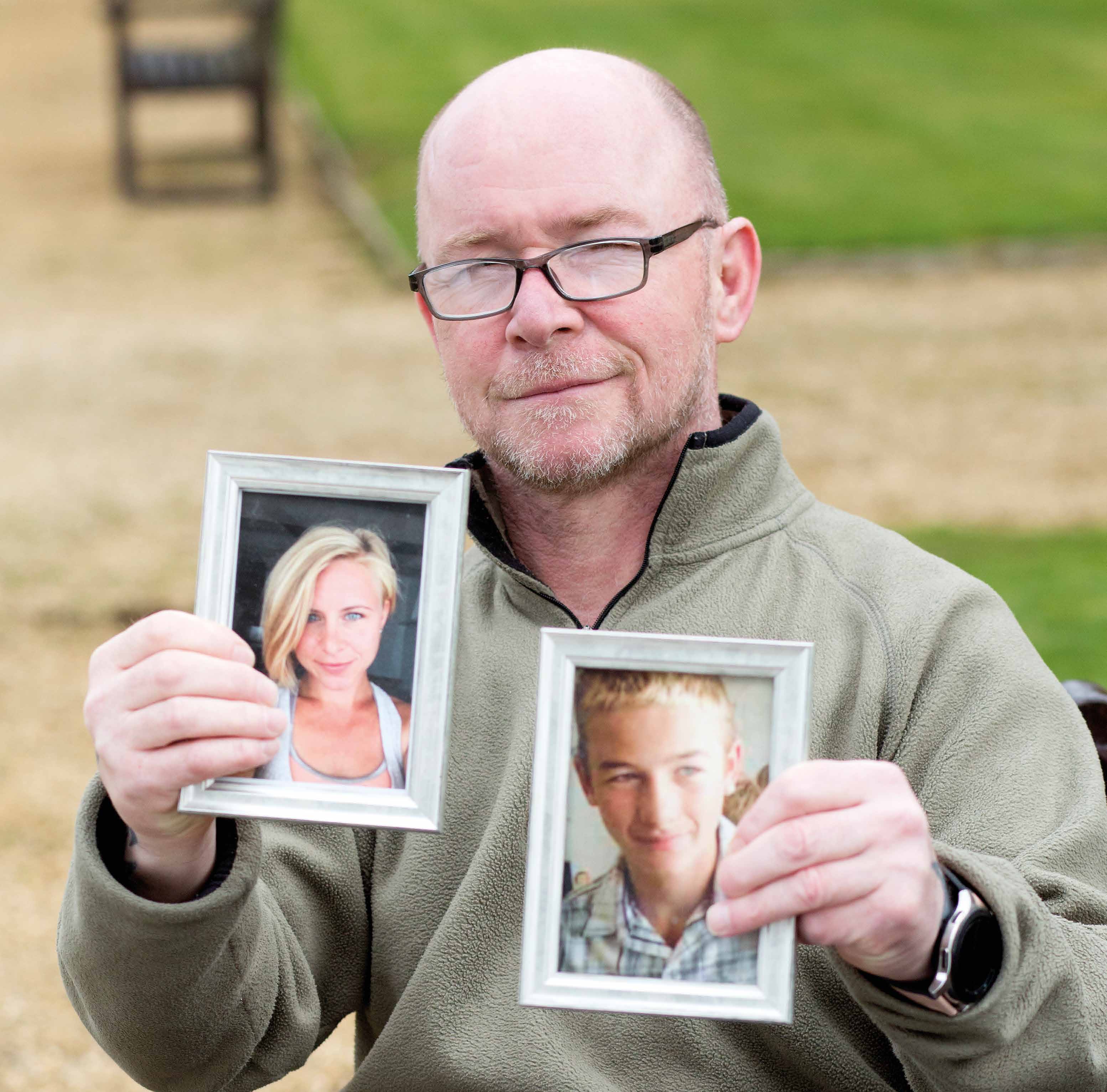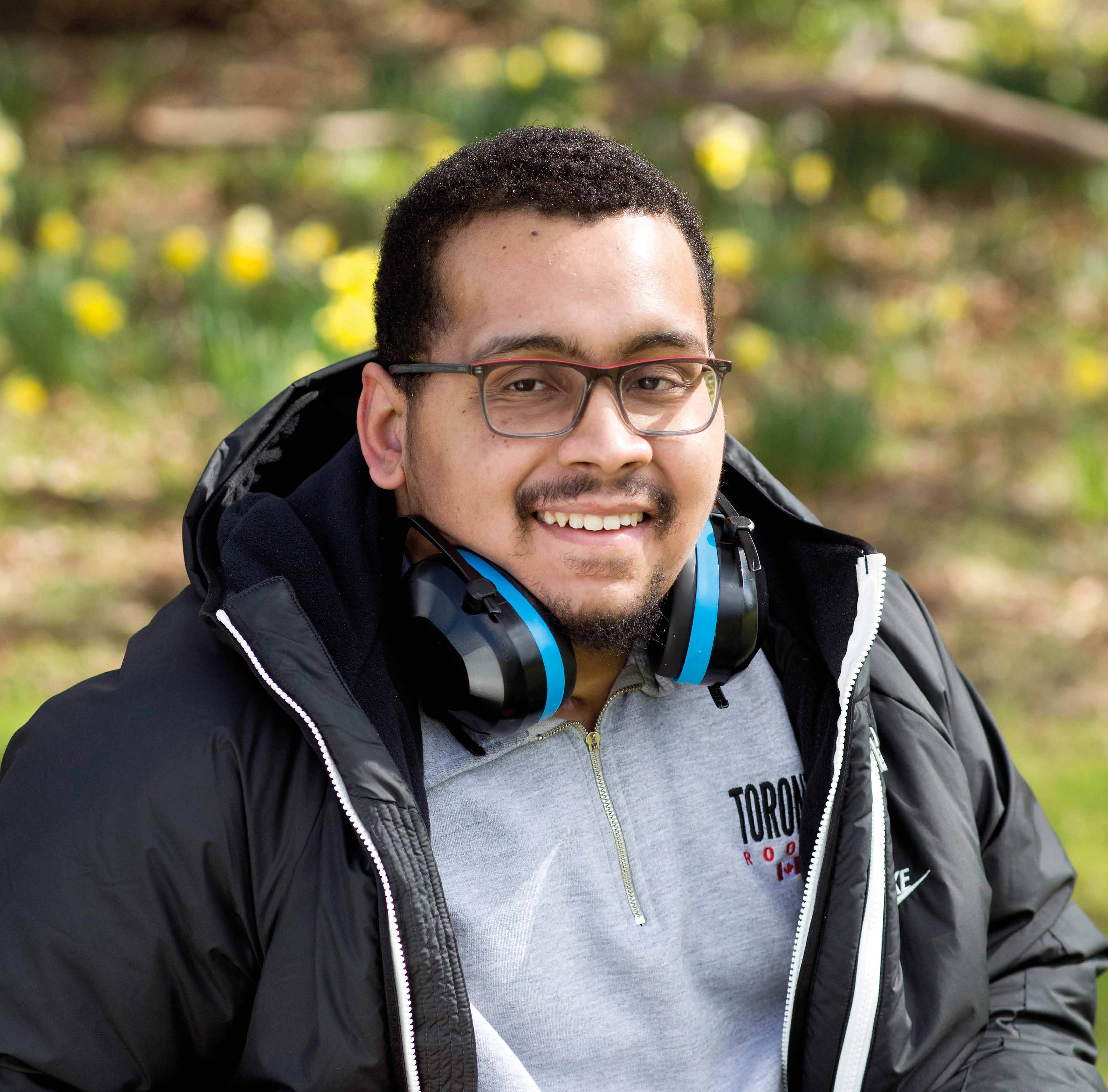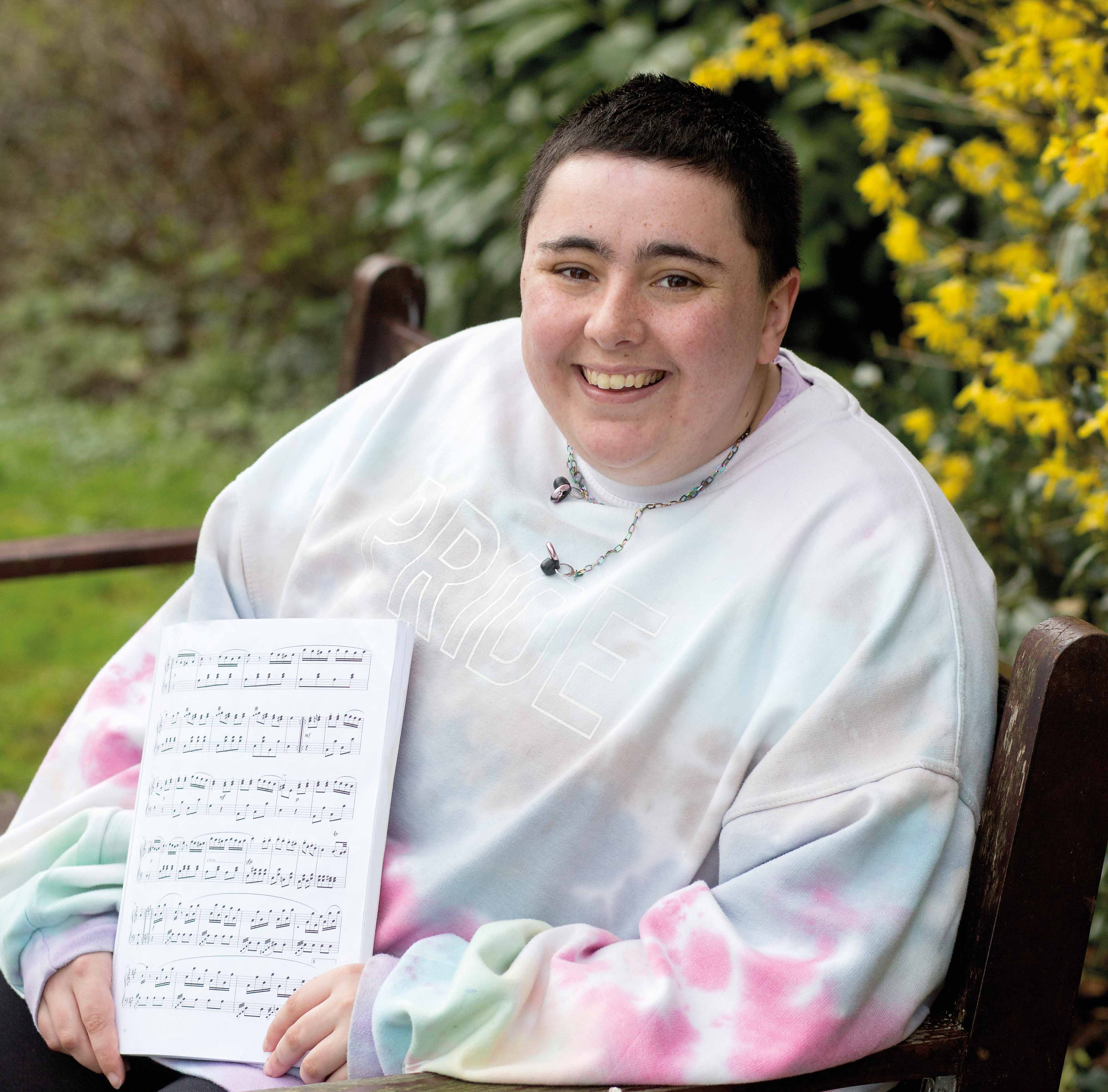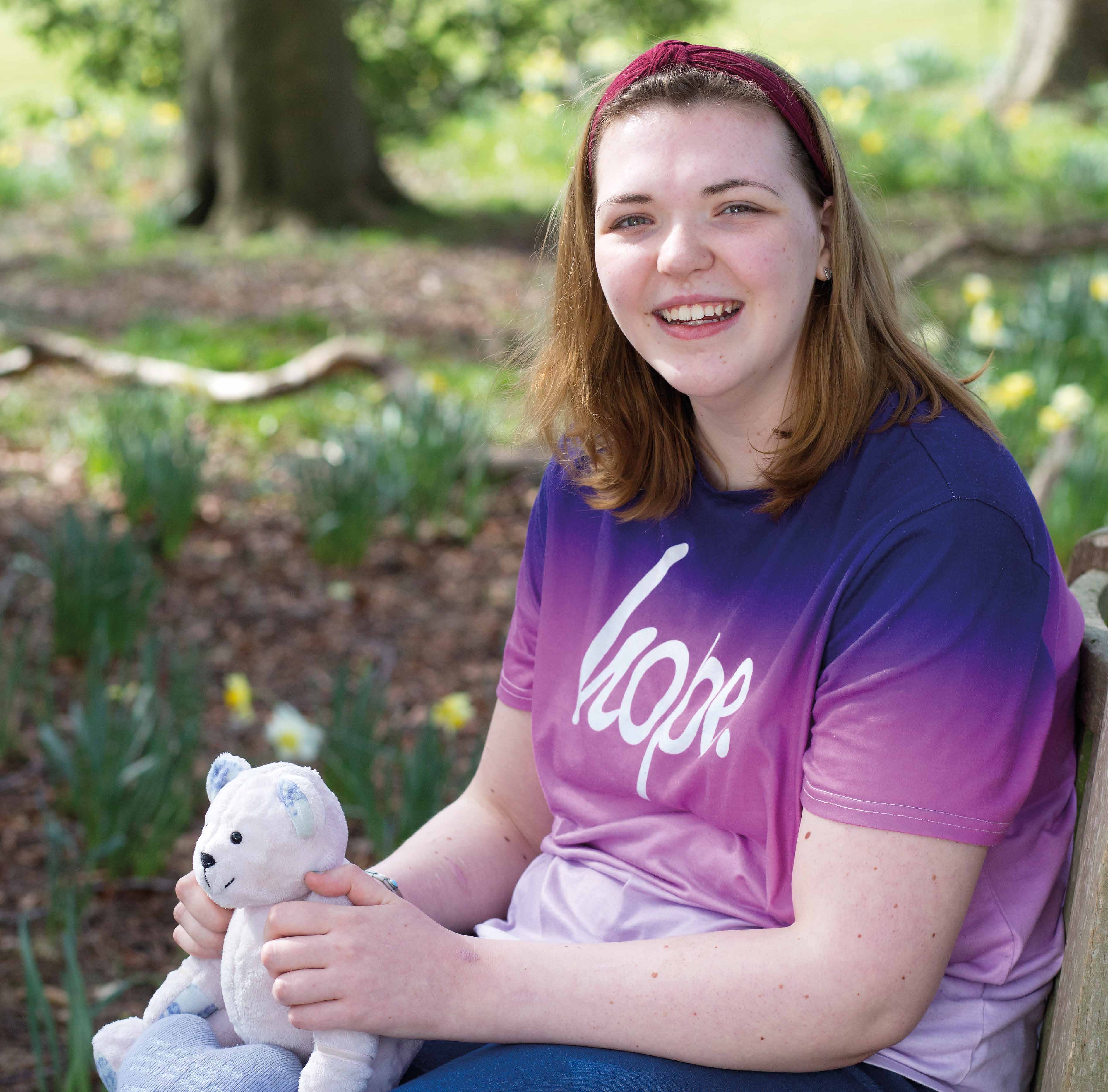What is hope, exactly? According to the “hope theory” formulated
by positive psychologist Charles Snyder, hope gives us the will,
determination, and sense of empowerment that allows us to reach
our goals.
But what if it feels like all hope is lost? How do you find hope
again and what inspires people to keep going?
Much like in physical health, hope is a key component to
recovery in mental health. Our photo exhibition, 'Hope' explores
the recovery journeys of 5 people who are all living with a
complex mental health condition. Each person featured wanted to
share their remarkable story with the aim of inspiring others to
find hope.
As you wander through the exhibition, have a think about what
hope means to you. Have you ever felt hopeless? If so, what
inspired you to keep going? Do you know someone struggling to
find hope? Can you hold onto hope for that person, until they
can find it themselves? If so you could just save their life.
Together we can make it easier for everyone to talk about how
they're feeling, without judgement and shame, so that no one has
to struggle on their own. Together we can inspire people to find
hope.
Get involved with the conversation online and share your
story of hope: #FindHope
“Hope is that thing inside us that insists, despite all the
evidence to the contrary, that something better awaits us if
we have the courage to reach for it and to work for it and
to fight for it.”
- Barack Obama
“They didn't know what to do with me so they stuck me in an
old person's home at 46. I felt like my life was over. I'd
lost my son and life seemed so bleak.”
Darran, who was diagnosed with Huntington's Disease
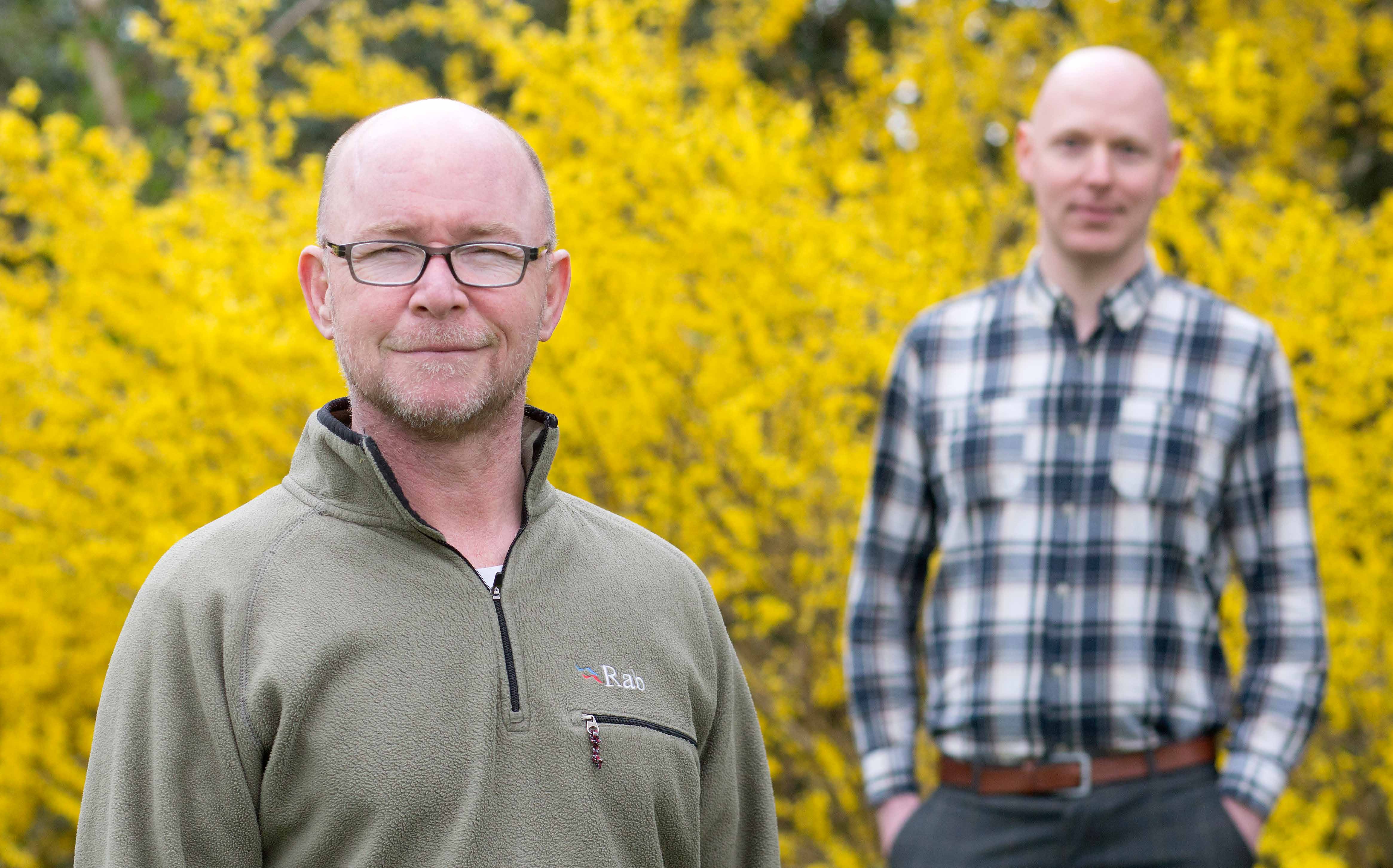
“I can smile again - I have found meaning to my life. I'm
around people who understand me and I feel like I have a
future again.”
Huntington's Disease (HD) is a relatively rare condition which
damages nerve cells in the brain causing them to stop working
properly. The damage to the brain gets worse over time and it
can have a significant impact on someone's movement, perception,
awareness, thinking, judgement and mental health. Very often
their behaviour can be mistaken for drunkenness which is
something Darran has had to contend with.
Around the time his teenage son passed away, the former builder
noticed that he had become very clumsy, was experiencing slurred
speech and was unable to walk in a straight line. Several GP
appointments later, his doctors were baffled as HD is not a
well-known condition. Even with a diagnosis, there remains
little understanding within the wider community and limited
specialist provision for people with the condition.
Following his eventual diagnosis, doctors were unsure how to
look after him, so he was placed in a care home for older
people. There, he grew depressed and ashamed, as he was living
with people he had nothing in common with and cared for by those
who did not understand his condition. His depression led him to
take an overdose and the weekend it happened Darran was
sectioned and started treatment at St Andrew's Healthcare.
He says it was pictures of his children who gave him hope as he
participated in months of gruelling physiotherapy to aid his
movement and to learn how to overcome the physical challenges
his illness was presenting to him.
Darran then readily engaged in psychological assessments and
formulation. Clinical interventions were related to acceptance
and adjustment to living with HD. Now he lives in assisted
living accommodation where St Andrew's staff continue to support
him and he spends his day focusing on his health and wellbeing.
Clinical and Forensic Psychologist Vincent Harding is pictured
with Darran and is part of a huge team who has worked closely
with him since 2021 to support and aid his recovery.
#FindHope
“I had no idea my mental health was so fragile. I genuinely
thought my ex-girlfriend was a terrorist and was coming to
kill us all. To me, that was my reality.”
Martin, experienced a mental health breakdown
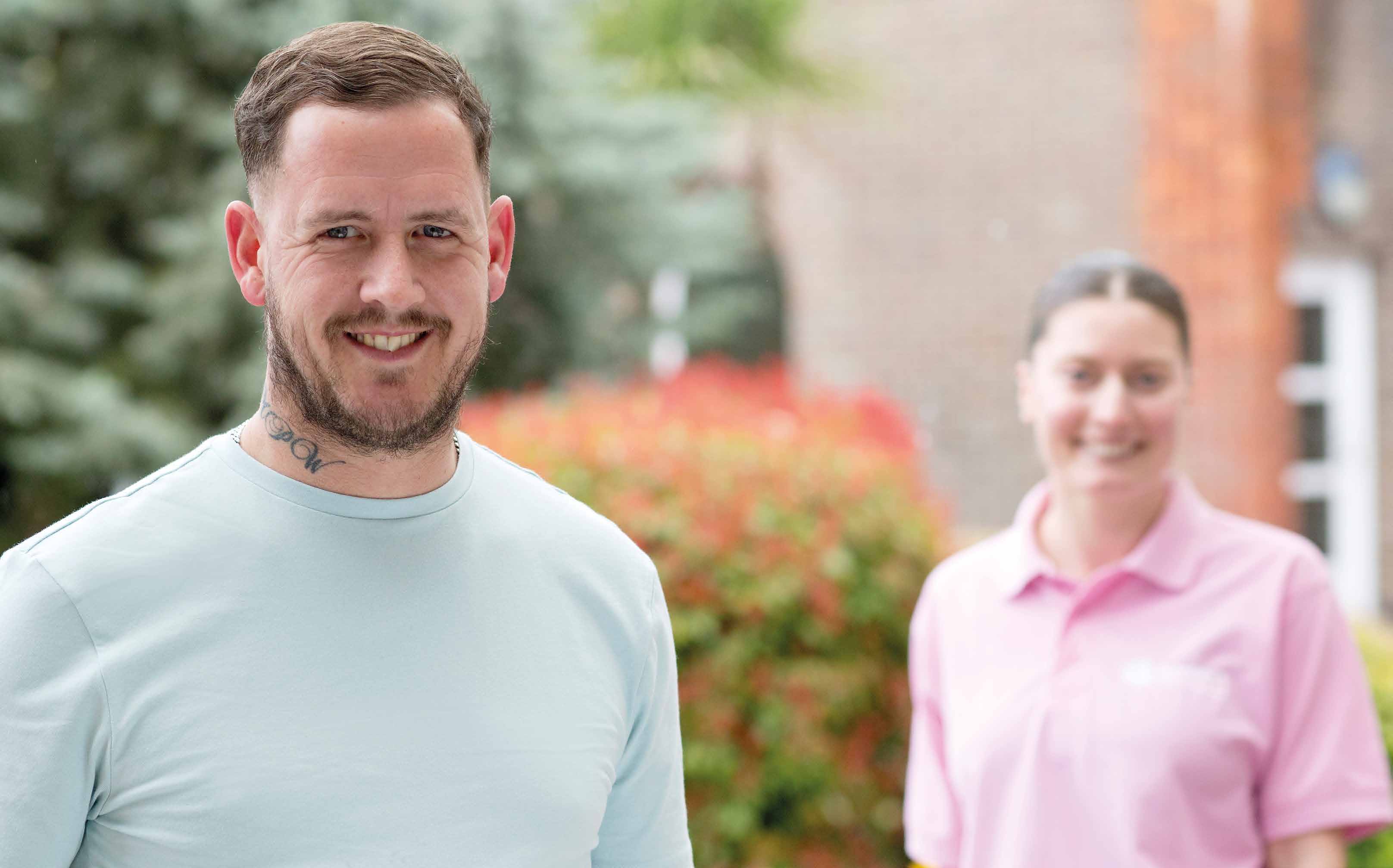
“When I started feeling better I used to lie on my bed
looking at the pictures of my children. I was desperate to
get back out into the real world and be a dad again and hug
my children”
Aged 38, Martin suffered a breakdown in September 2022 and was
admitted to St Andrew's Healthcare's Psychiatric Intensive Care
Unit (PICU) in Essex where he was treated for just over three
months.
A relationship break-up was what caused his psychosis, and it
led to very unpredictable and sometimes unsafe behaviour which
worried his family and friends. This led to him being sectioned
for the first time in his life.
At the time of admission, Martin admits he was angry and
confused and became very aggressive, attacking staff and
throwing furniture. But consistent medication and therapy helped
him to improve and he was discharged just before Christmas 2022.
During his hospital stay, Martin said it was his children that
gave him hope and inspired him to get better. Now he is working
full time at an airport and is hoping to volunteer at the
Charity to help other patients.
Ariana is an Occupational Therapist who worked with Martin
throughout his short stay and encouraged him to draw, paint and
listen to music in a bid to keep his mind active.
#FindHope
“After the accident we were left with a very angry,
frustrated young man who was left unable to speak, feed
himself and walk. The old Jovel had gone.”
Jovel's mum Amanda, referring to her son's traumatic brain
injury
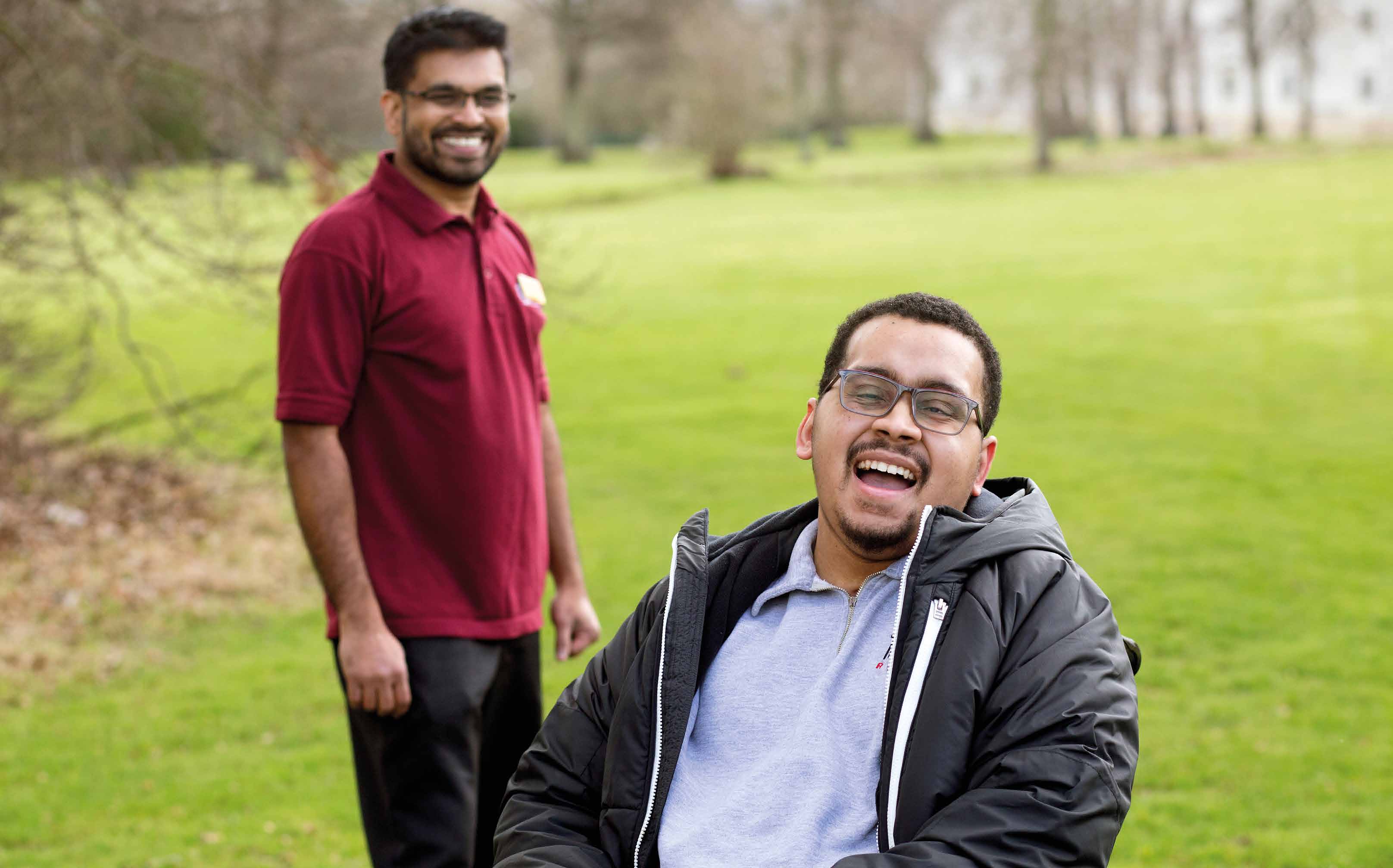
“Never give up. If I can do it, anyone can. My future feels
good. I'm going home soon, to eat spicy chicken and go back
to my recording studio where I'm going to make music.”
Trapped in a body which no longer did what he wanted, Jovel had
gone from being an active young man, to being unable to walk or
talk following an accident in 2019 when he was hit by a train.
Suddenly, life as he knew it had changed overnight. Aged just
19, he was put into an induced coma in hospital and remained
unconscious for just over a year. His family hoped he would wake
up but as the days went on it seemed unlikely, but much to
everyone's astonishment one day he did regain consciousness.
However, it became obvious almost instantly that the accident
had left him with a serious long-term brain injury, leaving him
in an almost vegetative state.
After the accident he was transferred to a facility in
Birmingham where his physical and mental health significantly
deteriorated. He was moved to St Andrew's Healthcare in 2022 to
an inpatient care and rehabilitation unit for people who have an
acquired or traumatic brain injury.
The wards within the unit specialise in helping people like
Jovel. Staff there provide active rehabilitation to adults with
complex mental health needs and neuropsychiatric diagnoses.
On admission, Jovel had given up. He did not feel like he had a
future. But then he met Highly Specialist Physiotherapist Binny
Kuriakose who set him an ambitious goal which involved getting
Jovel to walk and talk again. Gradually Jovel started to engage
with his physio work and build confidence, while also undergoing
psychology sessions too.
Music helped get him through his sessions as staff would play
his favourite music to keep him engaged and make him smile.
Listening to his favourite tracks reminded him of his recording
studio at home which he hoped he would be back using again.
Slowly, but surely, Jovel - who is now 23 - has defied all
expectations and is able to walk short distances again with a
frame.
#FindHope
“No one understood me. I felt hopeless.”
Clio, who has Asperger's Syndrome and an Emotionally Unstable
Personality Disorder (EUPD)
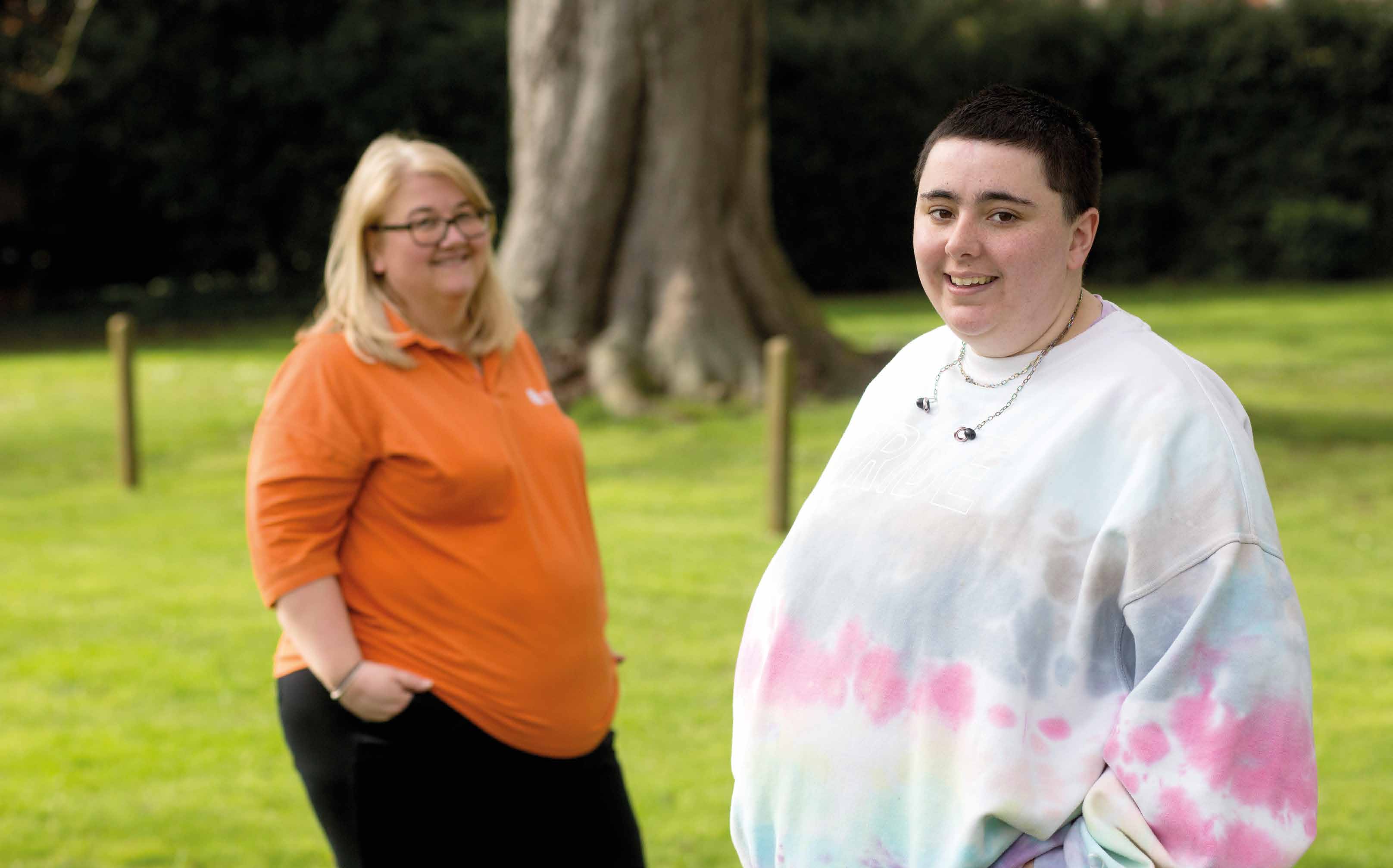
“For the first time ever I feel good in my own skin. I am
living the life I feel I should be as the gender I should
have been born. I am now eager to move on to the next stage
of my life.”
Clio has received treatment in eight different mental health
hospitals in just six years, but has said the only place that
has helped him get better is St Andrew's Healthcare.
The 23-year-old who identifies as a male and is yet to change
his name, was admitted in May 2022 having already been diagnosed
with Asperger's Syndrome and Emotionally Unstable Personality
Disorder (EUPD).
Having been admitted and discharged from various different
hospitals, Clio had started to believe he would never get better
and that his life would be always revolve around his poor mental
health. He said he felt hopeless and lost, constantly fighting
strong urges to self-harm.
In addition to trying to understand the complex feelings he was
experiencing which were associated with his gender identity,
Clio had also started to restrict his food and drink intake and
was hearing voices.
Clio was at breaking point, but was encouraged to start
Dialectical Behaviour Therapy (DBT). In addition, he was
encouraged to speak to a doctor about gender reassignment
surgery and has since started the referral process.
On his darkest days, Clio says he found solace and hope from
playing the piano, which Adult Education Teacher, Kelly Tracey,
who works at St Andrew's encouraged. Playing the instrument took
Clio away from his negative thought patterns and took him to a
place of peace.
#FindHope
“I had a job and I was doing fine and then all of a sudden
crippling anxiety struck and that changed everything for me”
Rhiannon, who has Borderline Personality Disorder (BPD) and
experiences pseudoseizures
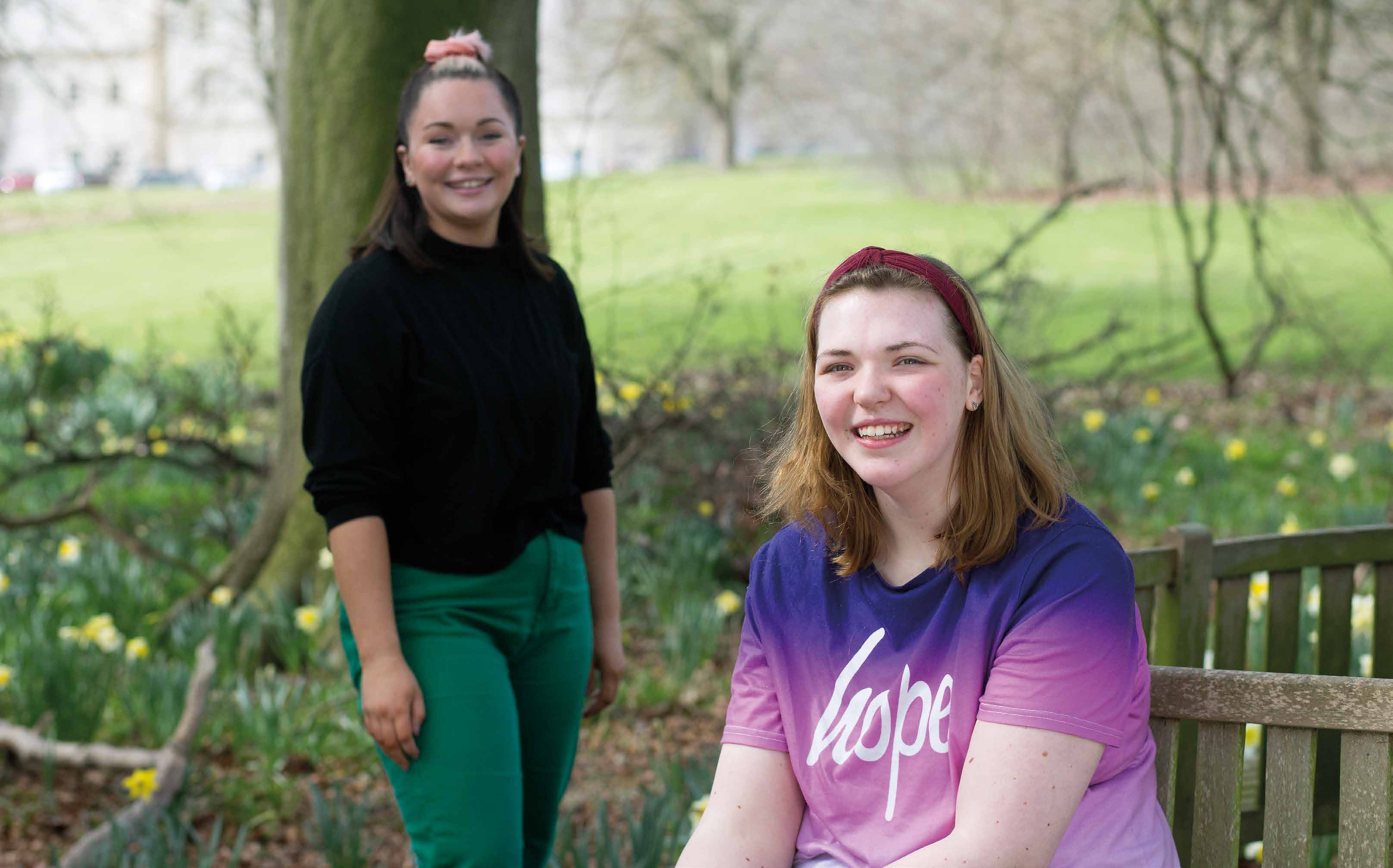
“Without question DBT has saved my life. I am smiling again.
I am living again.”
Rhiannon has been a patient at St Andrew's Healthcare for nearly
two years and has come a long way in her recovery. The
22-year-old, who is originally from Ireland, started having
seizures similar to the episodes experienced by those who have
epilepsy. Further investigation showed they were caused by
anxiety.
Her seizures, which are now very infrequent, can last from just
a few minutes or several hours. She has also been diagnosed with
Borderline Personality Disorder (BPD) and has been participating
in Dialectical Behaviour Therapy (DBT) which she says has “saved
her life”.
Estelle Randle is a Recovery College Peer Trainer and has her
own lived experience of mental health struggles. She has worked
closely with Rhiannon encouraging, guiding and inspiring her to
engage with her treatment and keep focussed on getting better.
She is now looking towards the future and recently landed a job
in the onsite café where she will be working for a few hours a
week. The teddy she is holding is made of her Grandma's old
clothes which has given her hope and served as a constant
reminder about the love she has for her family.
#FindHope

